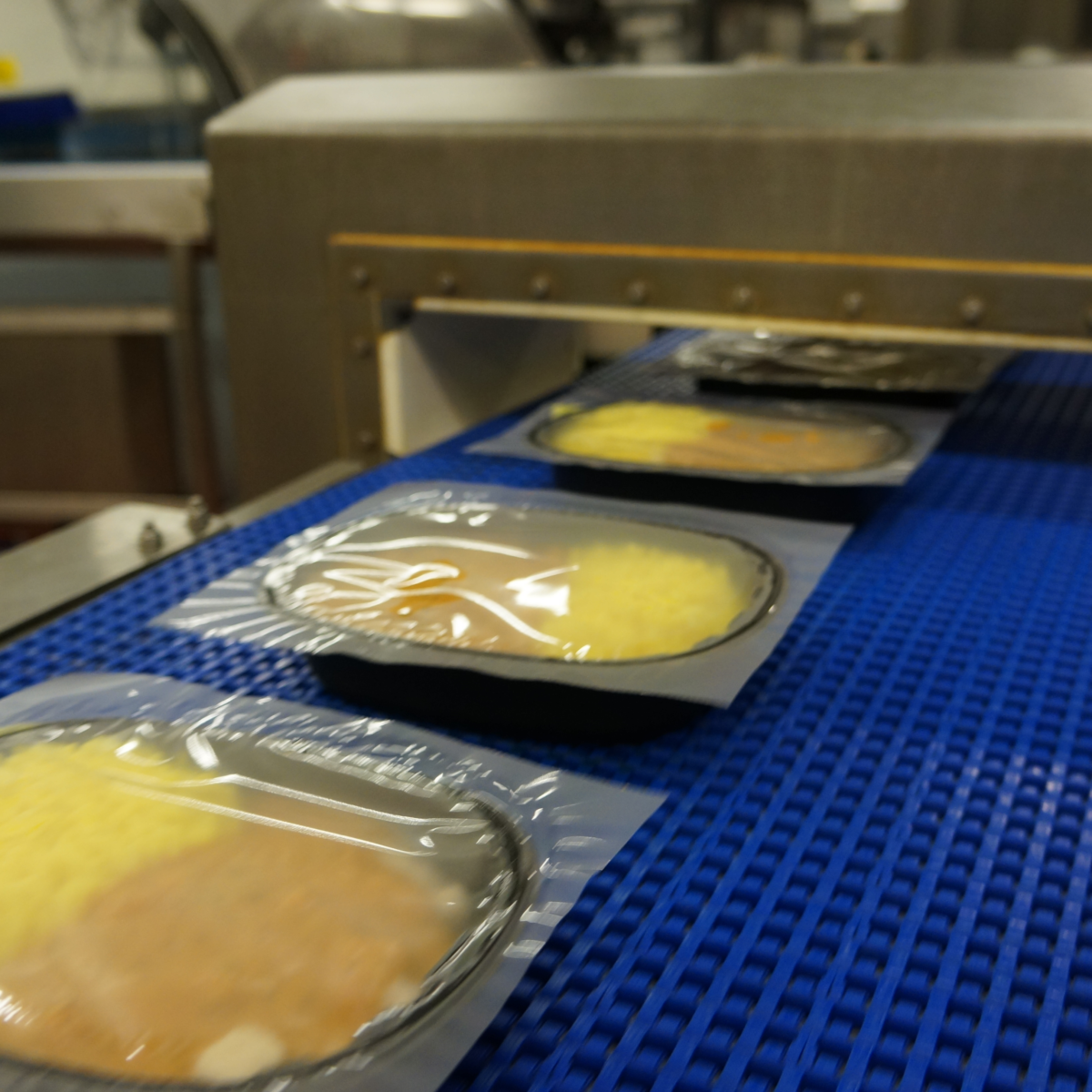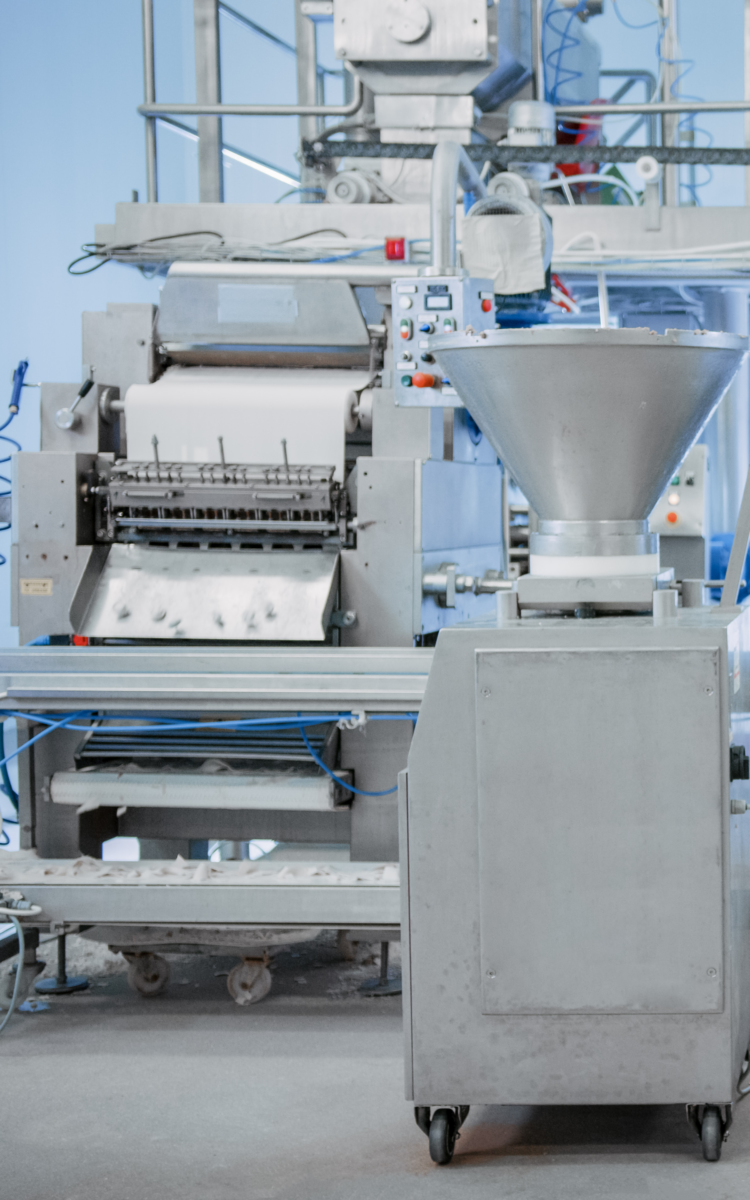Just as a family name is respected, a company’s brand must be protected. Choosing the right product inspection system for the detection of foreign material in your facility’s production line is a key step to protecting your brand.
The decision to install a new product inspection system or to upgrade an existing one is usually determined by one of two things: you either have the corporate commitment and financial resources to do what it takes to have the best inspection system for your particular product; or you have been mandated to do so in order to meet a specific regulatory requirement with financial constraints limiting your options. Regardless of why you’re exploring product inspection equipment, you should take into consideration each of the following tips before making any decision.
Determine the "True" Cost of Ownership

It is highly recommended that you consider using one vendor that is able to provide magnetic, metal detection, x-ray, and check-weigh systems along with a comprehensive understanding and commitment to food safety and customer service. Your goal should not be to purchase the cheapest system that can do the job, but instead, to look at the long-term investment.
Initial purchase and installation - The least expensive part of your overall investment for electronic inspection equipment involves the up-front equipment purchase and installation cost, unlike other contaminant removal equipment such as magnets.
Equipment usability and adaptability - Consider the cost of “false” positive readings or rejects, the ongoing cost of maintenance and equipment validation, and the future adaptability of the system you choose. Understanding how a vendor’s equipment is supported as updates in software become available can keep existing electronic inspection equipment on the leading edge of technology, or result in obsolescence if it is not easily upgradeable.
Technical support - Ask if your vendor offers an annual technical support subscription. These programs can often include discounted rates for software upgrades, parts and service, not to mention annual third party re-certification.
Employee education - Consider and figure the on-going cost of training new employees. High turnover is inherent in the industry and is often the root cause of mistakes being made and recalls being issued. For example, the cost of recalling a product due to a “false” positive resulting from an employee error can damage your brand almost as much as actual particulate contamination. Once a recall is issued you cannot undo it, the damage is done and your brand has been tarnished.

Understanding Food Safety and Product Inspection Limitations
It is important that your vendor explain not only what their equipment can do, but what it cannot do. For example, magnets, when sized correctly and installed properly are very effective in capturing ferrous and weakly magnetic non-ferrous metals. In many cases, magnets can go beyond the capabilities of most metal detection and X-ray systems. Nonferrous or nonmagnetic metals, such as aluminum, will not be eliminated by a magnetic system. To control and capture these types of metals, metal detectors or X-ray systems should be considered.
Metal Detectors – Metal detector technology is based on a product’s “conductivity”. Highly conductive products like meats and baby food will be more challenging to sense smaller sized, specific types of metals. This typically results in a more generalized “metals sensing spectrum” to ensure quality standards are being achieved, while avoiding costly “false” positive rejects.
X-ray – X-ray technology is based on a product’s “density”. Some products are easier to inspect than others and some are not able to be screened by X-ray technology at all. If the targeted materials have a similar density of the products being inspected, such as non-calcified bones in chicken, the X-ray will be ineffective.
Take the time to talk to more than one vendor. It is necessary that the vendor you choose not only understand, but is able to explain the technological limitations of the equipment. He or she should be able to present the physics-based principals for particulate detection in layman’s terms. You should come away from the assessment knowing at least one thing you didn’t know before and feeling confident in your new-found knowledge and the decision to be made.
Invest in Continuing Education
It’s important to select a vendor who will partner with your company in offering service packages that provide education, training, and periodic retraining for your employees. Technologies in this industry are constantly evolving, the goal being to make the detection of foreign material contamination in food ever better. On average, between 20 and 25 percent of recalls are due to detectable foreign matter such as bone, plastic, glass, or metal making its way to the consumer’s table. It is vitally important that the people responsible for monitoring and maintaining the detection equipment are knowledgeable on its operation and maintenance. Even without a high turnover rate, simple changes in mixtures or recipes can require a system calibration and reprogramming. In regards to electronic inspection equipment, one size does not fit all.
Ensure Technical Support is Readily Available
There are few things worse than buying a product, not having it work properly, and then being unable to get the level of technical support needed. Most commonly the barriers to product support are language or distance, and often, both. You may find that a U.S.-based company will be more willing and able to provide the technical support that goes with its products. The ideal situation is to purchase from a vendor that services what they sell, even if that may mean paying a premium price. Technical support means providing an understanding of the system that goes well beyond its installation. This may include system validation, programming requirements, preventative maintenance, or reports required to fulfill a regulatory requirement. This support also needs to be easily accessible. Waiting hours will be a major inconvenience, but waiting days or weeks could cost you an unimaginable amount in lost revenue. Ask the tough questions, and get it in writing.
Opt for Sanitary Design
With the FDA’s recent elevated focus on food safety, sanitary design is a wise consideration. First, you want to look for a design that eliminates the need for disassembly in order to be cleaned. If it must be disassembled, it should be quickly accomplished and preferably require no tools. Food processing is a dirty business. Be it wet or dry, food matter can find the smallest nook and cranny in which to collect and grow colonies of potentially deadly germs. Nuts, bolts, and screws are all capable of harboring pathogens, as are the tools used to remove them. Routine cleaning is a fact of life, one that will be included in any comprehensive hazard analysis and critical control points (HACCP) plan. It is a chore that is time-consuming and messy, which is why it is often not completed properly and/or on schedule, if at all. Investing in a built-in, well-thought-out sanitary design will more than pay for itself over time.

Critical thinking before making a decision to purchase is necessary. Know what foreign materials are risks to your product line, and find the vendor that can address each of those risks. Be aware that it may take more than one piece of equipment to adequately provide optimal detection, and be open to weighing all of your options. This, in all likelihood, will render the cost of ownership more manageable and leave you with more trust and satisfaction in your product inspection system.
